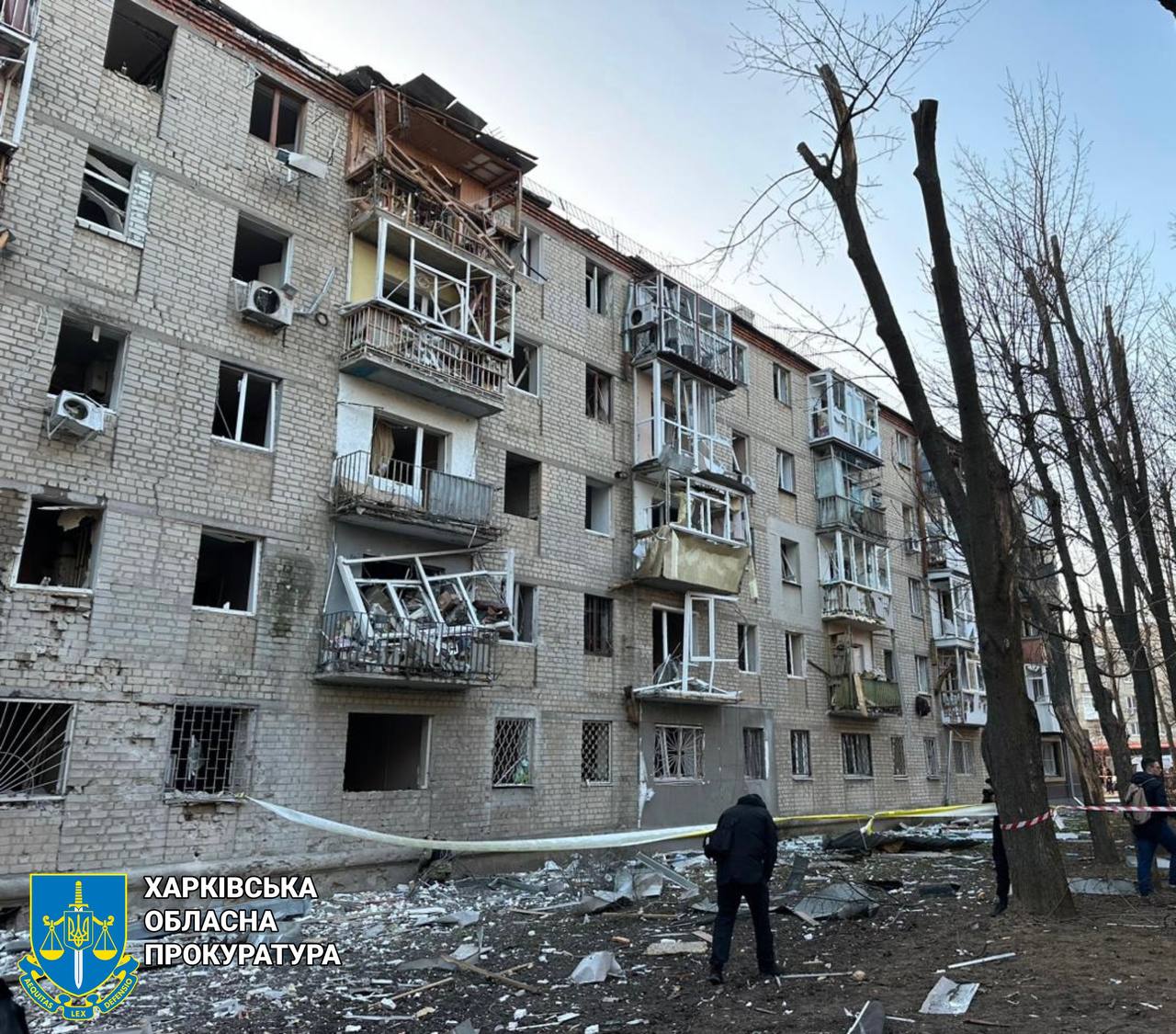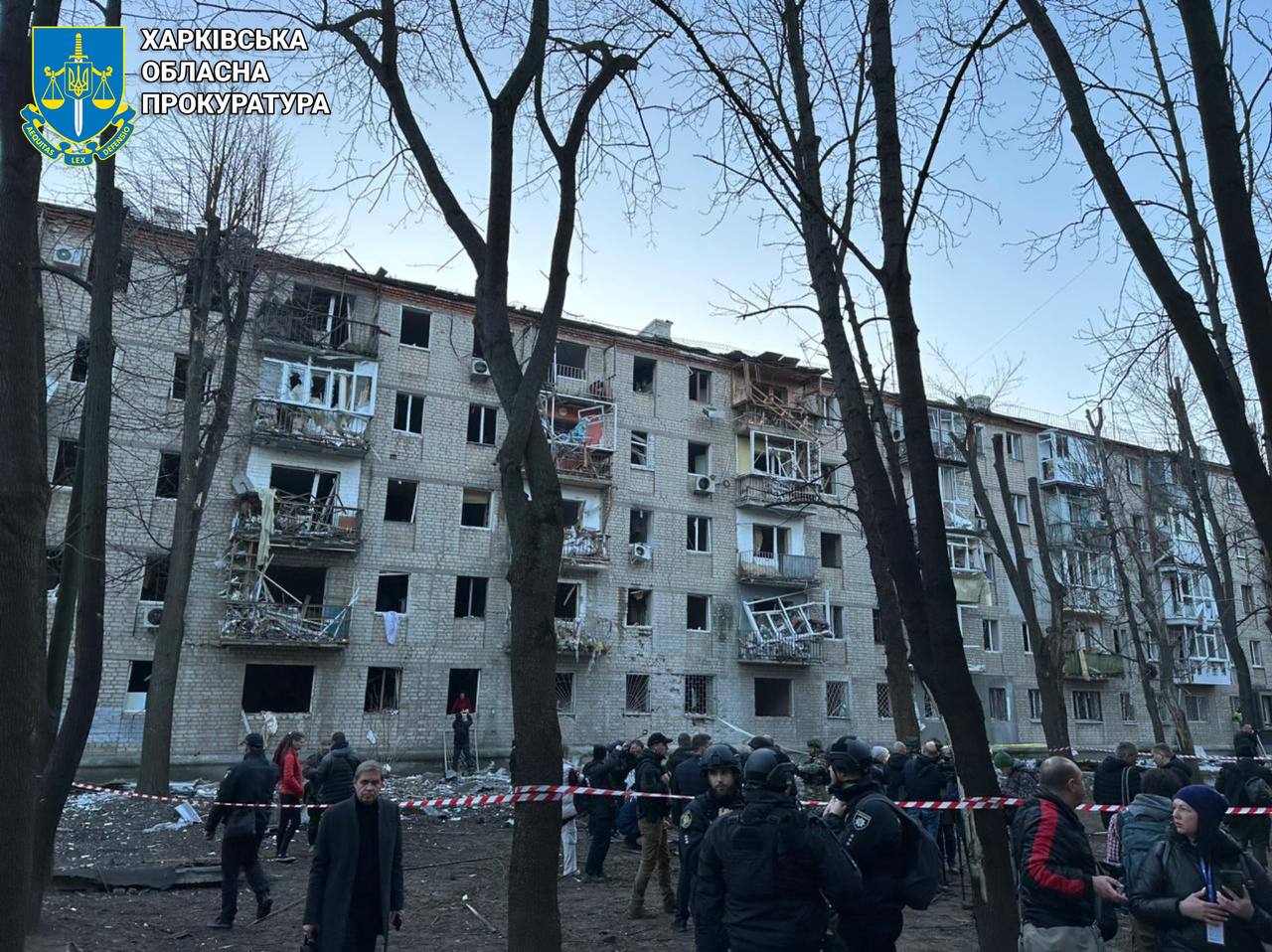Russia aims to knock out Ukraine's power grid in new wave of attacks
Russia unleashed a fresh wave of missile and drone attacks against Ukraine from March 21-25, targeting the country's critical infrastructure with unprecedented force.
President Volodymyr Zelensky revealed in his address on March 24 that approximately 190 missiles, 140 Shahed-type drones, and 700 aerial bombs were unleashed across Ukraine during the past week.
A new missile attack targeted Kyiv just a day later, marking a concerning escalation in Russia's assault. Experts believe Moscow's primary objective is to cripple Ukraine's power grid, although they have yet to succeed in this endeavor. However, with air defense resources dwindling, the situation grows increasingly precarious.
Some analysts attribute these attacks as retaliation for Ukraine's recent drone strikes against Russian oil facilities, disrupting Russia's oil production capacity. Frederico Borsari, a defense analyst, sees this as an attempt by Russia to demonstrate strength while undermining Ukrainian morale by cutting off critical energy supplies.
However, others argue that Russia's decision to attack was a result of meticulous planning and strategic timing, rather than a direct response to Ukrainian military actions. Oleksandr Kharchenko, an energy industry expert, suggests that the attack was meticulously prepared over a significant period, with the primary goal of causing a national blackout.
Ukrainian and Western officials warn of an impending large-scale campaign against Ukraine's power grid, similar to previous assaults in late 2022 and early 2023. While Russia's attacks have dealt a severe blow, Ukraine has managed to avoid a total blackout through swift defensive actions and strategic adaptations.
The recent attacks have caused extensive damage to critical infrastructure, including the Dnipro Hydroelectric Power Plant. The restoration of such facilities is projected to take years, exacerbating Ukraine's energy challenges amid the ongoing conflict.
Despite the challenges, Ukraine remains resilient, with energy workers better equipped to handle the stress on the grid. However, the need for assistance from Western allies, particularly in equipment and resources, is evident to facilitate the restoration efforts.
As Ukraine braces for the coming summer months, concerns loom over potential energy deficits and the long-term impact of Russia's relentless assaults on its infrastructure. While the road to recovery may be arduous, Ukraine remains determined to withstand the onslaught and emerge stronger from the crisis.
Russian attack on Kharkiv residential area kills 1, injures at least 19, including children

Russian troops attacked a residential neighborhood in Kharkiv on March 27, killing one civilian man and injuring at least 19 other people, including four children, Kharkiv Oblast Governor Oleh Syniehubov reported.
The Shevchenkivskyi district of the city came under two Russian strikes, Syniehubov said.
Kharkiv was attacked with a glide munition, which can travel up to 90 km, according to preliminary data, published by the governor. Serhii Bolvinov, the head of the investigative department of the regional police, said it was the first air bomb attack against the city since 2022.
"The attack on residential buildings was probably carried out with a UMPB D-30 munition. It is quite powerful, with an average explosive force between an aerial bomb and a missile," he said.
Two five-story buildings, an administrative building and a medical facility were partially destroyed, Syniehubov wrote on Telegram. A total of 14 multi-storey buildings and an educational institution were reportedly damaged.
Children aged between three months and 13 years are among the wounded, according to the governor.

Kharkiv has endured relentless onslaughts from Russian forces since the commencement of the full-scale invasion. Throughout the winter, it faced numerous deadly attacks as Russia unleashed mass missile strikes across Ukraine.
Recent escalations by Moscow have targeted Ukraine's vital infrastructure, resulting in the destruction of a thermal power plant and all electrical substations in Kharkiv, as reported by Terekhov.
The consequences of these attacks have been severe, with approximately 200,000 households in Kharkiv—Ukraine's second-largest city—left without electricity as of March 25, according to Syniehubov.
Ukraine tells traders its gas storage sites are safe despite recent Russian attack
Ukraine is taking steps to reassure European natural gas traders about the safety of its ground storage facilities, despite the recent Russian attack.
According to Roman Maliutin, the chief executive officer of gas storage operator Ukrtransgaz JSC, Ukraine anticipates importing 4 billion cubic meters of gas during the summer months, exceeding last year's volume. Traditionally, European countries utilize the summer season to accumulate reserves in preparation for the upcoming heating period. However, following the strike on a facility in western Ukraine on Sunday, traders may exhibit greater caution, as reported by Bloomberg.
Maliutin emphasized that the damages incurred do not hinder Ukraine's ability to inject gas into underground storage facilities. He assured Bloomberg News that Ukrtransgaz has over 1,000 contracts in place, including 168 with entities outside of Ukraine.
While Sunday's attack may heighten trader caution, Maliutin asserted that Ukrtransgaz possesses sufficient reserve capacity and is prepared to respond accordingly. Additionally, the firm has implemented measures to mitigate the impact of damage to specific sites. For instance, gas stored in certain facilities is not linked to individual customers but is managed collectively across all facilities.